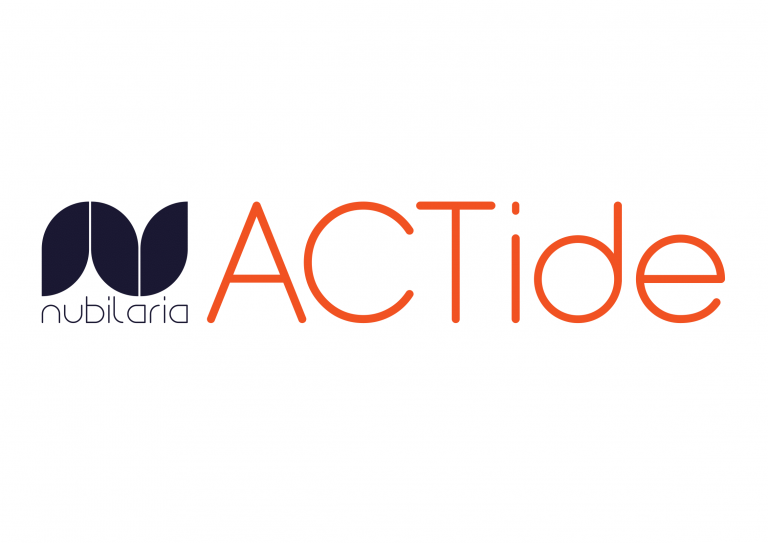ViiV Healthcare’s two-drug combo non-inferior to 3-drug HIV regimen
ViiV Healthcare’s GEMINI studies showed that the 2-drug regimen (2DR) of dolutegravir plus lamivudine, appeared to have non-inferior potency in antiretroviral treatment-naïve adults with HIV-1, a high genetic barrier to resistance and a reasonable safety profile compared to a 3-drug regimen of dolutegravir plus two nucleoside reverse transcriptase (NRTI) inhibitors, tenofovir disoproxil fumarate / emtricitabine (TDF / FTC).
With Pfizer Inc. and Shionogi Limited as shareholders, ViiV Healthcare, the worldwide expert HIV corporation majority-owned by GSK, announced the three-year findings from the Phase III GEMINI 1 & 2 trials, at the HIV Glasgow 2020 congress.
Pedro Cahn, M.D., Scientific Director, Fundación Huésped, Professor of Infectious Diseases, Buenos Aires University Medical School, and principal investigator for the GEMINI study programme, said:
“These long-term data confirm that dolutegravir-based 2-drug regimens have a rightful place in the HIV treatment compendium. Dolutegravir plus lamivudine continues to demonstrate long-term non-inferior efficacy compared to dolutegravir plus TDF/FTC with benefits beyond viral suppression. While overall adverse event rates were similar across the study arms, we saw fewer drug-related adverse events with dolutegravir plus lamivudine. Clinicians who wanted proof that a dolutegravir-based 2-drug regimen works long-term in treatment-naïve adults with HIV now have evidence to show that it does.”
Dolutegravir plus lamivudine vs. dolutegravir plus TDF / FTC
A randomized review of the two trials found that dolutegravir plus lamivudine displayed non-inferiority, with 82% (584/716) of participants in the Snapshot research – Intention to Treat-Exposed (ITT-E) group having HIV-1 RNA < 50 copies per millilitre (c / mL) at Week 144, compared with 84% (599/717) of participants getting a 3-drug regimen of dolutegravir plus TDF / FTC (adjusted difference: -1.8 [95% CI: -5.8%, 2.1%]). Findings on safety and tolerability were compatible with previous information.
The Vice President for Global Medical Strategy and Head of R&D at ViiV Healthcare, Dr. Kimberly Smith, M.D., MPH said:
“Globally, the number of people living with HIV aged 50 and over is increasing and that’s testament to the success of antiretroviral therapy, which has transformed HIV into a chronic condition. However, living longer with HIV can mean taking multiple medications for many years, and we know that many people living with HIV have a preference to take as few medicines as possible, as long as their HIV remains under control. The momentum behind 2DRs is growing: Dovato has now shown sustained efficacy and tolerability through three years of treatment, with people able to maintain viral suppression with fewer medicines than a 3-drug regimen.”
Dolutegravir plus lamivudine constantly presented a high genetic barrier to treatment-emergent resistance. The rate of participants with protocol-defined confirmed virologic withdrawal (CVW) was 1.7% (12/716) in the dolutegravir plus lamivudine arm and 1.3% (9/717) in the dolutegravir plus TDF/FTC arm. None of these individuals developed treatment-emergent resistance. Before discontinuing the study, one non-CVW participant receiving dolutegravir + lamivudine with documented non-adherence to therapy had developed M184V and R263R / K resistance mutations.
Overall adverse event (AE) rates were similar between the study arms, with lower rates of drug-related AEs in participants receiving dolutegravir plus lamivudine compared with those receiving dolutegravir plus TDF/FTC (20% [146/716] vs 27% [192/717], respectively). Four deaths occurred (3/716 for dolutegravir plus lamivudine vs 1/717 for dolutegravir plus TDF/FTC), all of which were considered unrelated to the study drug regimen.
The results of the study demonstrated prospects for long-term bone and renal health benefits, with post-baseline improvements in bone and renal markers fully supporting dolutegravir + lamivudine through Week 144 in comparison to dolutegravir + TDF / FTC.
About the GEMINI 1 & 2 trials
GEMINI 1 (204861) & GEMINI 2 (205543) are duplicate, Phase III, randomised, double-blind, multicentre, parallel group, non-inferiority studies, and part of ViiV Healthcare’s pionering clinical study project. These trials evaluate a 2-drug regimen of dolutegravir plus lamivudine compared with a 3-drug regimen of dolutegravir plus TDF/FTC in HIV-1 infected, antiretroviral treatment-naïve adult participants with baseline HIV-1 viral loads between 1,000 and 500,000 c/mL.
The trials have been targeting to display the non-inferior efficacy at Week 48, as well as the safety and tolerability of once-daily dolutegravir plus lamivudine compared to once-daily dolutegravir plus the fixed-dose combination of TDF/FDC in HIV-1-infected, antiretroviral treatment-naïve adult individuals. The primary endpoint was the proportion of participants with HIV-1 RNA plasma <50c/mL at Week 48; secondary endpoints included the proportion of participants with HIV-1 RNA plasma <50c/mL at Weeks 24, 96 and 144.
About Dovato (dolutegravir/lamivudine)
Dovato is a once-daily, single-pill, 2-drug regimen (2DR) that combines the integrase strand transfer inhibitor (INI) dolutegravir (Tivicay, 50 mg) with the NRTI lamivudine (Epivir, 300 mg).
Dovato (dolutegravir 50 mg/ lamivudine 300 mg tablets) is officially licensed in the EU for the treatment of HIV-1 infection for adults and teenagers above 12 years of age with a minimum weight of 40 kilograms, and no known or suspected resistance to the INI class, or lamivudine. In the US, Dovato is suggested as a full therapy for the treatment of HIV-1 infection in adults with no history of ARV treatment or to substitute the existing ARV dosage in those who are virologically suppressed (HIV-1 RNA < 50 copies / mL) with a stable ARV regimen with no history of treatment failure and no documented resistance to any Dovato ingredient.
Like a three-drug regimen based on dolutegravir, Dovato uses two medications at distributed mode to disrupt the viral cycle. By blocking viral DNA from entering into the genetic material of human immune cells (T-cells), INIs, like dolutegravir, inhibit HIV replication. The HIV replication cycle, is considered to be the crucial point responsible for the the development of chronic infection. Lamivudine is a NRTI that acts by interacting with the deoxyribonucleic acid ( DNA) conversion of viral ribonucleic acid ( RNA), which in turn prevents the replication of the virus. Dovato is licensed in the US, Europe, Japan and other countries worldwide. Trademarks are owned by or licensed to the ViiV Healthcare group of companies.
About ViiV Healthcare
ViiV Healthcare is a global specialist HIV company established in November 2009 by GlaxoSmithKline (LSE: GSK) and Pfizer (NYSE: PFE) dedicated to delivering advances in treatment and care for people living with HIV and for people who are at risk of becoming infected with HIV. Shionogi joined in October 2012. The company’s aims are to take a deeper and broader interest in HIV/AIDS than any company has done before and take a new approach to deliver effective and innovative medicines for HIV treatment and prevention, as well as support communities affected by HIV.
For more information please visit www.viivhealthcare.com.
About GSK
GlaxoSmithKline plc. is a British global science-led global healthcare company with a special purpose: to help people do more, feel better, live longer.
For further information please visit https://www.gsk.com/en-gb/about-us/
Original Source:
Recommended Company
Advertisement
More headlines






